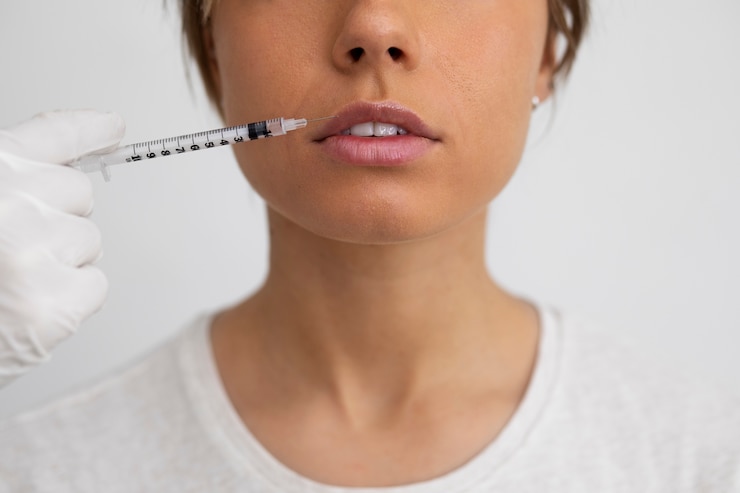Lip fillers have gained immense popularity in the cosmetic industry, with many individuals seeking to enhance their lip volume, shape, and overall appearance. While the aesthetic benefits are well-documented, it's crucial to understand the potential impact of lip filler injections on your health. This article explores various aspects of how Lip Fillers Injections in Dubai can affect both physical and mental well-being.
Understanding Lip Fillers
What Are Lip Fillers?
Lip fillers are injectable substances, commonly hyaluronic acid-based, that are used to enhance the volume and shape of the lips. Hyaluronic acid is a naturally occurring substance in the body, known for its ability to retain moisture and add volume to tissues. Other types of fillers may include collagen and synthetic materials, but hyaluronic acid is the most prevalent due to its safety profile and ease of use.
The Procedure
The process of getting lip fillers is relatively straightforward. A qualified practitioner administers the injections using a fine needle, often with the application of a topical anesthetic to minimize discomfort. The procedure typically takes about 30 minutes to an hour, depending on the extent of enhancement desired.

Health Implications of Lip Fillers
Safety Considerations
The safety of lip fillers largely depends on the product used and the skill of the injector. Most hyaluronic acid fillers are considered safe and are FDA-approved. However, complications can arise, including:
Infection: As with any injection, there is a risk of infection at the injection site. Proper aftercare is essential to minimize this risk.
Allergic Reactions: While rare, some individuals may experience allergic reactions to the filler material. It’s crucial to consult with a healthcare provider before undergoing treatment, especially if you have a history of allergies.
Vascular Complications: In rare cases, the filler can inadvertently enter a blood vessel, leading to serious complications such as tissue necrosis or vision loss. Choosing a skilled practitioner can significantly reduce this risk.
Impact on Oral Health
Lip fillers can affect oral health in various ways:
Changes in Lip Function: Some individuals may experience altered lip function, including difficulties in speaking or eating, especially if the fillers are over-injected.
Gum and Tooth Health: Injecting fillers too close to the gums can potentially lead to irritation or inflammation. Ensuring that your injector has a thorough understanding of facial anatomy is essential to avoid complications.
Mental Health Considerations
The psychological impact of lip fillers can be profound:
Boost in Self-Confidence: Many individuals report an increase in self-esteem and confidence following lip filler treatments. Enhanced physical appearance can lead to improved self-image and social interactions.
Unrealistic Expectations: Conversely, some individuals may develop unrealistic expectations regarding their appearance post-treatment. This could lead to dissatisfaction and even psychological distress. Having a comprehensive consultation with a qualified practitioner can help set realistic goals.
Body Dysmorphic Disorder (BDD): In some cases, individuals with pre-existing body image issues may become fixated on minor imperfections, leading to repeated procedures and a cycle of dissatisfaction. It's essential to evaluate mental health prior to undergoing cosmetic treatments.
Allergies and Reactions
As mentioned earlier, allergic reactions can occur, though they are infrequent. Patients should disclose their medical history, including any allergies, to their injector.
Symptoms of Allergic Reactions: These may include swelling, redness, itching, or pain at the injection site. If any severe symptoms arise, such as difficulty breathing or swelling of the face, immediate medical attention is necessary.
Long-Term Effects
While lip fillers provide immediate results, their long-term effects on health are still being studied:
Tissue Changes: Over time, repeated lip filler treatments may lead to changes in the tissue's elasticity and structure. Regular monitoring by a healthcare provider is advisable to assess any long-term effects.
Dependency on Treatments: Some individuals may feel the need to maintain their enhanced appearance, leading to ongoing treatments. This could create a psychological dependence on cosmetic procedures.
Aftercare and Recovery
Post-treatment care is crucial for minimizing complications and promoting healing:
Avoid Touching or Massaging the Area: After getting lip fillers, patients are advised to avoid touching or massaging their lips for at least 24 hours. This helps prevent the filler from migrating.
Cold Compress: Applying a cold compress can help reduce swelling and discomfort.
Avoid Strenuous Activities: Patients should refrain from intense exercise and activities that may elevate blood pressure for a few days following the procedure.
Hydration: Staying hydrated is essential for maintaining the skin’s elasticity and supporting recovery.
Follow-Up Appointments: Scheduling follow-up appointments with your injector can help address any concerns and evaluate the results.
Conclusion
Lip filler injections can significantly enhance appearance and boost self-confidence. However, understanding the potential health impacts is crucial. While the procedure is generally safe when performed by a qualified practitioner, risks such as infection, allergic reactions, and mental health implications must be considered. It is essential to conduct thorough research, choose a reputable injector, and maintain open communication about expectations and concerns. Always prioritize health and well-being when considering cosmetic procedures, and consult with healthcare professionals to ensure a safe and satisfying experience.





Comments